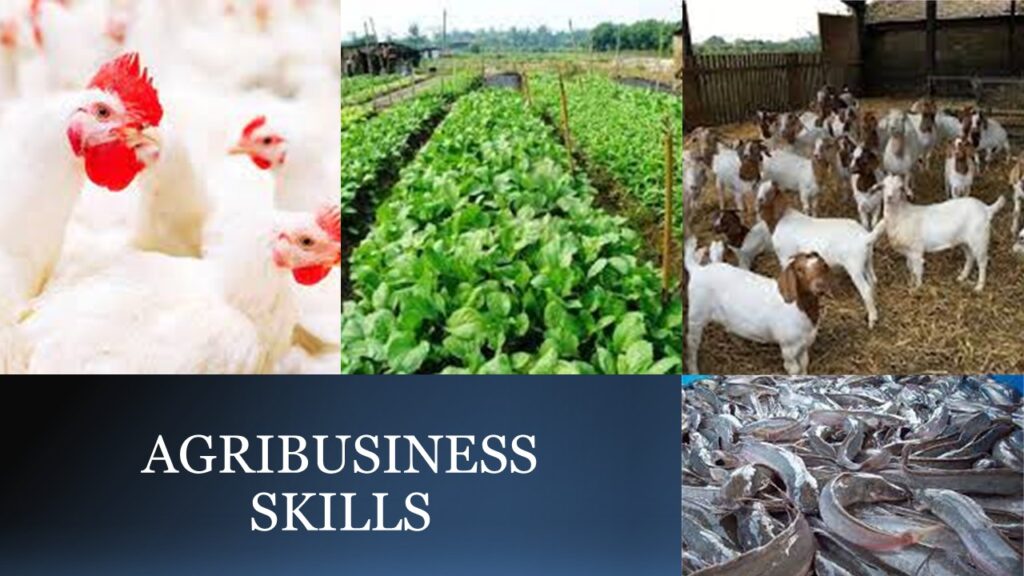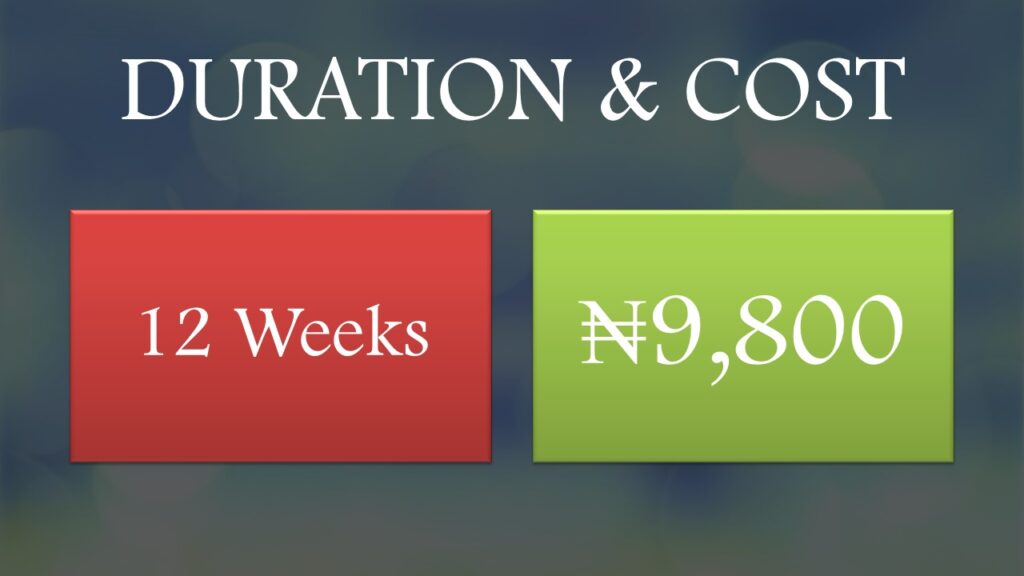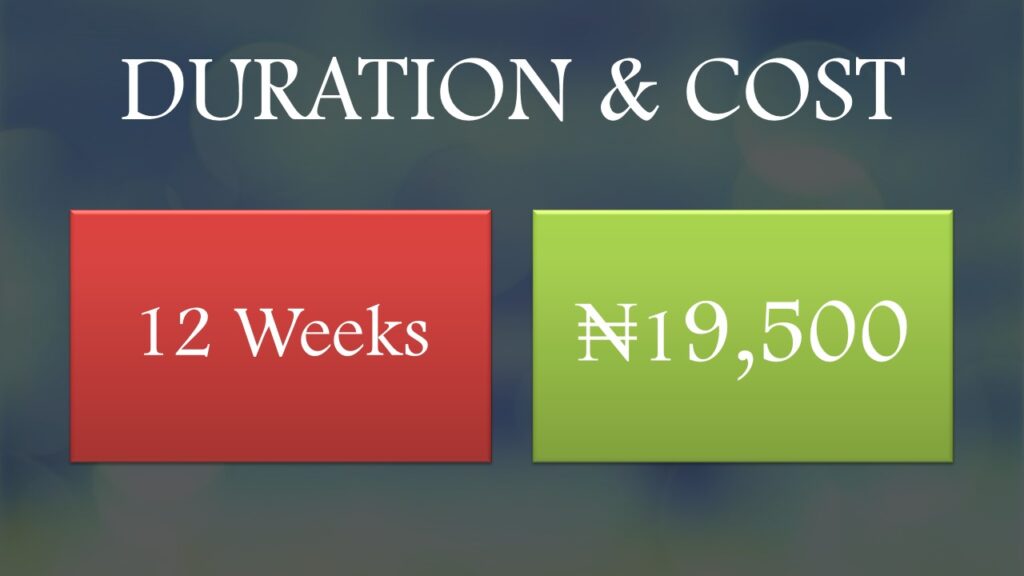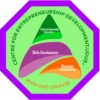
Poultry Production
Course Description & Objectives
The Hands-On Poultry Production course at the Usmanu Danfodiyo University, Sokoto Entrepreneurship Centre is a comprehensive program designed to provide participants with practical skills and knowledge in poultry farming. Poultry production is a vital component of the agriculture and food industry, making this course essential for individuals interested in sustainable agriculture, entrepreneurship, or seeking to establish a poultry farming business.
Participants will learn the fundamentals of poultry farming, from selecting suitable breeds and managing flock health to understanding poultry nutrition, housing, and biosecurity. Practical hands-on activities will introduce participants to poultry farm management, including egg production and broiler farming. By the end of the course, participants will be equipped to start and manage their poultry farms or engage in poultry production as a business venture.
Whether you are a student, aspiring poultry farmer, or an entrepreneur interested in agricultural ventures, this course equips you with the knowledge and skills needed to succeed in poultry production.
Course Objectives:
By the end of this course, participants will be able to:
- Understand the principles of poultry production and its significance in the agriculture and food industry.
- Identify and select suitable poultry breeds for specific purposes.
- Proficiently manage poultry flock health and implement biosecurity measures.
- Comprehend poultry nutrition and develop balanced feeding programs.
- Design and manage poultry housing for optimal production and welfare.
- Apply sustainable and ethical practices in poultry farming.
- Engage in practical activities related to egg production and broiler farming.
- Develop a business plan for poultry production.
- Build a portfolio of practical poultry farming activities and projects.
Apply poultry production skills to personal, academic, or entrepreneurial projects.

Course Outline
Module 1: Introduction to Poultry Production
- Understanding the importance of poultry farming in agriculture and food production
- Historical overview and technological advancements in poultry production
- Ethical and sustainable practices in poultry farming
- Setting up a poultry farm for hands-on activities
Module 2: Poultry Breeds and Selection
- Exploring poultry breeds for different purposes (layers, broilers, dual-purpose)
- Selecting suitable breeds for specific farming goals
- Practical activities in breed selection
Module 3: Poultry Health and Biosecurity
- Flock health management and disease prevention
- Biosecurity measures in poultry farming
- Practical exercises in flock health and biosecurity
Module 4: Poultry Nutrition and Feeding
- Understanding poultry nutrition and dietary requirements
- Developing balanced feeding programs
- Practical feeding activities and formulation of poultry diets
Module 5: Poultry Housing and Welfare
- Housing design and management for different poultry types
- Environmental control and welfare considerations
- Practical activities in poultry housing
Module 6: Practical Egg Production
- Egg production management
- Collection, handling, and grading of eggs
- Practical egg production activities
Module 7: Broiler Farming
- Broiler management from chick to market
- Feeding, health management, and processing
- Practical broiler farming activities
Module 8: Business Planning in Poultry Production
- Developing a business plan for poultry production
- Marketing and financial considerations
- Presentation and critique of poultry production business plans
Assessment:
- Breed selection and flock management projects
- Feeding program formulation and practical feeding activities
- Poultry housing design and management project
- Practical egg production and broiler farming activities
- Poultry production business plan
- Portfolio of poultry farming activities and projects
Fishery Production
Course Description
The practically oriented Fish Farming course at the Usmanu Danfodiyo University, Sokoto Entrepreneurship Centre is a practical program aimed at equipping participants with the knowledge and skills needed to engage in sustainable and profitable fish farming. Fish farming is a vital component of the aquaculture industry and plays a crucial role in providing a source of high-quality protein for communities.
This course covers all aspects of fish farming, from selecting suitable fish species and managing water quality to understanding fish nutrition, pond construction, and disease control. Practical hands-on activities will introduce participants to fish farm management, including fish breeding and pond maintenance. By the end of the course, participants will be prepared to start and manage their own fish farms or engage in fish farming as a business venture.
Whether you are a student, aspiring fish farmer, or an entrepreneur interested in aquaculture, this course provides you with the knowledge and skills required to excel in fish farming.
Course Objectives:
By the end of this course, participants will be able to:
- Understand the principles of fish farming and its significance in the aquaculture industry.
- Identify and select suitable fish species for specific purposes.
- Proficiently manage fish health and implement disease control measures.
- Comprehend fish nutrition and develop balanced feeding programs.
- Design and manage fish ponds for optimal fish growth and welfare.
- Apply sustainable and ethical practices in fish farming.
- Engage in practical activities related to fish breeding and pond maintenance.
- Develop a business plan for fish farming.
- Build a portfolio of practical fish farming activities and projects.
- Apply fish farming skills to personal, academic, or entrepreneurial projects.

Course Outline
Module 1: Introduction to Fish Farming
- Understanding the importance of fish farming in aquaculture and food production
- Historical overview and technological advancements in fish farming
- Ethical and sustainable practices in fish farming
- Setting up a fish farm for hands-on activities
Module 2: Fish Species and Selection
- Exploring fish species for different purposes (tilapia, catfish, trout, etc.)
- Selecting suitable species for specific farming goals
- Practical activities in fish species selection
Module 3: Fish Health and Disease Control
- Fish health management and disease prevention
- Disease identification and control measures
- Practical exercises in fish health and disease management
Module 4: Fish Nutrition and Feeding
- Understanding fish nutrition and dietary requirements
- Developing balanced feeding programs
- Practical feeding activities and formulation of fish diets
Module 5: Fish Pond Construction and Management
- Pond design and construction
- Water quality management and environmental control
- Practical activities in fish pond management
Module 6: Fish Breeding
- Fish breeding techniques
- Spawning, fry management, and fingerling production
- Practical fish breeding activities
Module 7: Business Planning in Fish Farming
- Developing a business plan for fish farming
- Marketing and financial considerations
- Presentation and critique of fish farming business plans
Assessment:
- Species selection and management projects
- Feeding program formulation and practical feeding activities
- Fish pond design and management project
- Practical fish breeding activities
- Fish farming business plan
- Portfolio of fish farming activities and projects
Small Ruminants Production
Course Description
The Hands-On Small Ruminants Production course at the Usmanu Danfodiyo University, Sokoto Entrepreneurship Centre is designed to provide participants with practical skills and knowledge in the management of small ruminants, such as sheep and goats. Small ruminants are valuable livestock for their meat, milk, and fiber production, making this course essential for individuals interested in animal husbandry, agriculture, or those looking to establish a small ruminant farming business.
This course covers various aspects of small ruminants production, from breed selection and nutrition to animal health, housing, and reproduction. Practical hands-on activities will introduce participants to small ruminant farm management, including animal care, breeding, and health maintenance. By the end of the course, participants will be equipped to start and manage their small ruminant farms or engage in small ruminants production as a business venture.
Whether you are a student, aspiring small ruminants farmer, or an entrepreneur interested in animal agriculture, this course provides you with the knowledge and skills required to succeed in small ruminants production.
Course Objectives:
By the end of this course, participants will be able to:
- Understand the principles of small ruminants production and its significance in animal agriculture.
- Identify and select suitable small ruminant breeds for specific purposes.
- Proficiently manage small ruminant health and implement disease control measures.
- Comprehend small ruminant nutrition and develop balanced feeding programs.
- Design and manage small ruminant housing for optimal animal welfare.
- Apply sustainable and ethical practices in small ruminants farming.
- Engage in practical activities related to small ruminant breeding, reproduction, and health maintenance.
- Develop a business plan for small ruminants production.
- Build a portfolio of practical small ruminants farming activities and projects.
- Apply small ruminants production skills to personal, academic, or entrepreneurial projects.

Course Outline
Module 1: Introduction to Small Ruminants Production
- Understanding the importance of small ruminants in animal agriculture
- Historical overview and technological advancements in small ruminants production
- Ethical and sustainable practices in small ruminants farming
- Setting up a small ruminant farm for hands-on activities
Module 2: Small Ruminant Breeds and Selection
- Exploring small ruminant breeds for different purposes (meat, milk, fiber)
- Selecting suitable breeds for specific farming goals
- Practical activities in small ruminant breed selection
Module 3: Small Ruminant Health and Disease Control
- Small ruminant health management and disease prevention
- Disease identification and control measures
- Practical exercises in small ruminant health and disease management
Module 4: Small Ruminant Nutrition and Feeding
- Understanding small ruminant nutrition and dietary requirements
- Developing balanced feeding programs
- Practical feeding activities and formulation of diets for small ruminants
Module 5: Small Ruminant Housing and Welfare
- Housing design and management for small ruminants
- Environmental control and welfare considerations
- Practical activities in small ruminant housing management
Module 6: Small Ruminant Reproduction and Breeding
- Reproduction in small ruminants
- Breeding techniques and management
- Practical small ruminant breeding activities
Module 7: Business Planning in Small Ruminants Production
- Developing a business plan for small ruminants production
- Marketing and financial considerations
- Presentation and critique of small ruminants farming business plans
Assessment:
- Breed selection and management projects
- Feeding program formulation and practical feeding activities
- Small ruminant housing design and management project
- Practical small ruminant breeding activities
- Small ruminants farming business plan
Portfolio of small ruminants farming activities and projects
Vegetable Gardening
Course Description & Objectives
The Hands-On Small Vegetable Production course at the Usmanu Danfodiyo University, Sokoto Entrepreneurship Centre is a practical program designed to provide participants with the knowledge and skills needed to successfully cultivate small vegetables. Small vegetable farming plays a critical role in providing fresh, nutritious produce for communities and offers opportunities for sustainable agriculture and entrepreneurship.
This course covers all aspects of small vegetable production, from selecting suitable crops and soil preparation to understanding plant nutrition, pest control, and harvesting. Practical hands-on activities will introduce participants to vegetable farm management, including crop care, organic farming, and crop rotation. By the end of the course, participants will be equipped to start and manage their vegetable farms or engage in small vegetable production as a business venture.
Whether you are a student, aspiring vegetable farmer, or an entrepreneur interested in sustainable agriculture, this course provides you with the knowledge and skills required to excel in small vegetable production.
Course Objectives:
By the end of this course, participants will be able to:
- Understand the principles of small vegetable production and its significance in agriculture and food production.
- Identify and select suitable vegetable crops for specific purposes.
- Proficiently manage vegetable crops and implement pest control measures.
- Comprehend plant nutrition and develop appropriate fertilization strategies.
- Design and manage vegetable gardens for optimal crop growth and health.
- Apply sustainable and organic farming practices in small vegetable production.
- Engage in practical activities related to crop care, organic farming, and crop rotation.
- Develop a business plan for small vegetable production.
- Build a portfolio of practical small vegetable farming activities and projects.
- Apply small vegetable production skills to personal, academic, or entrepreneurial projects.

Course Outline
Module 1: Introduction to Small Vegetable Production
- Understanding the importance of small vegetable farming in agriculture and food production
- Historical overview and technological advancements in small vegetable production
- Sustainable and organic practices in small vegetable farming
- Setting up a small vegetable garden for hands-on activities
Module 2: Vegetable Crop Selection
- Exploring vegetable crops for different purposes (leafy greens, root vegetables, herbs, etc.)
- Selecting suitable crops for specific gardening goals
- Practical activities in vegetable crop selection
Module 3: Crop Care and Pest Control
- Vegetable crop management and pest control
- Identifying common pests and diseases
- Practical exercises in crop care and pest control
Module 4: Plant Nutrition and Fertilization
- Understanding plant nutrition and nutrient requirements
- Developing balanced fertilization strategies
- Practical fertilization activities and soil testing
Module 5: Vegetable Garden Design and Management
- Garden design for efficient use of space
- Soil preparation and garden bed construction
- Practical activities in vegetable garden management
Module 6: Sustainable and Organic Farming Practices
- Sustainable and organic farming methods
- Composting, mulching, and crop rotation
- Practical organic farming activities
Module 7: Business Planning in Small Vegetable Production
- Developing a business plan for small vegetable production
- Marketing and financial considerations
- Presentation and critique of small vegetable farming business plans
Assessment:
- Crop selection and management projects
- Pest control measures and practical exercises
- Fertilization and soil testing project
- Small vegetable garden design and management project
- Small vegetable farming business plan
- Portfolio of small vegetable farming activities and projects
Integrated Fish Poultry & Vegetable Farming
Course Description & Objectives
The Hands-On Integrated Fish, Poultry, and Vegetable Production course at the Usmanu Danfodiyo University, Sokoto Entrepreneurship Centre is a comprehensive program designed to equip participants with the knowledge and practical skills needed to manage an integrated farming system that combines fish, poultry, and vegetable production. Integrated farming offers a sustainable and holistic approach to agriculture, where the waste products from one component become inputs for another, optimizing resource utilization and increasing overall farm productivity.
This course covers all aspects of integrated farming, from selecting suitable fish, poultry, and vegetable species to understanding animal and crop health, nutrition, housing, and disease control. Practical hands-on activities will introduce participants to the management of all three components, focusing on the complementary relationships between them. By the end of the course, participants will be prepared to establish and manage their integrated fish, poultry, and vegetable farms or engage in integrated farming as a business venture.
Whether you are a student, aspiring farmer, or an entrepreneur interested in sustainable agriculture, this course provides you with the knowledge and skills required to excel in integrated fish, poultry, and vegetable production.
Course Objectives:
By the end of this course, participants will be able to:
- Understand the principles of integrated fish, poultry, and vegetable farming and its significance in sustainable agriculture.
- Identify and select suitable fish, poultry, and vegetable species for specific purposes.
- Proficiently manage the health of fish, poultry, and crops, and implement disease control measures.
- Comprehend animal and crop nutrition and develop balanced feeding programs.
- Design and manage integrated farm facilities, including ponds, poultry houses, and vegetable gardens.
- Apply sustainable and ethical practices in integrated farming, including crop integration and waste recycling.
- Engage in practical activities related to integrated farm management and diversified income streams.
- Develop a business plan for integrated fish, poultry, and vegetable farming.
- Build a portfolio of practical integrated farming activities and projects.
Apply integrated farming skills to personal, academic, or entrepreneurial projects.

Course Outline
Module 1: Introduction to Integrated Fish, Poultry, and Vegetable Farming
- Understanding the importance of integrated farming in sustainable agriculture
- Historical overview and technological advancements in integrated farming
- Ethical and sustainable practices in integrated farming
- Setting up an integrated farm for hands-on activities
Module 2: Species Selection for Integration
- Exploring suitable fish, poultry, and vegetable species for integration
- Selecting species for specific farming goals
- Practical activities in species selection for integrated farming
Module 3: Health and Disease Control
- Health management and disease prevention for fish, poultry, and crops
- Disease identification and control measures
- Practical exercises in health and disease management in integrated farming
Module 4: Nutrition and Feeding
- Understanding animal and crop nutrition and dietary requirements
- Developing balanced feeding programs for fish, poultry, and vegetables
- Practical feeding activities and formulation of diets for integrated farming
Module 5: Farm Facilities and Management
- Design and construction of integrated farm facilities
- Water quality management and environmental control
- Practical activities in integrated farm management, including waste recycling
Module 6: Sustainable and Ethical Farming Practices
- Sustainable and ethical farming methods for integrated systems
- Crop integration, composting, and pest control
- Practical activities in sustainable and ethical integrated farming practices
Module 7: Business Planning in Integrated Farming
- Developing a business plan for integrated fish, poultry, and vegetable farming
- Marketing and financial considerations for diversified income streams
- Presentation and critique of integrated farming business plans
Assessment:
- Species selection and management projects
- Disease control measures and practical exercises
- Feeding program formulation and practical feeding activities
- Integrated farm facilities design and management project
- Integrated farming business plan
- Portfolio of practical integrated farming activities and projects

